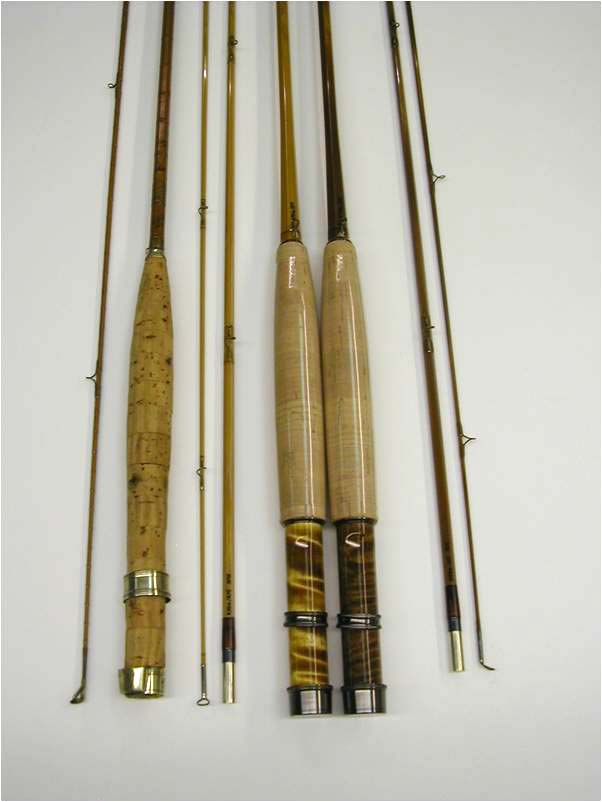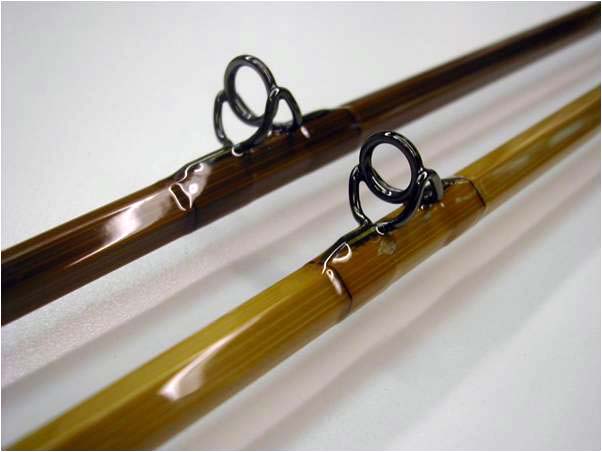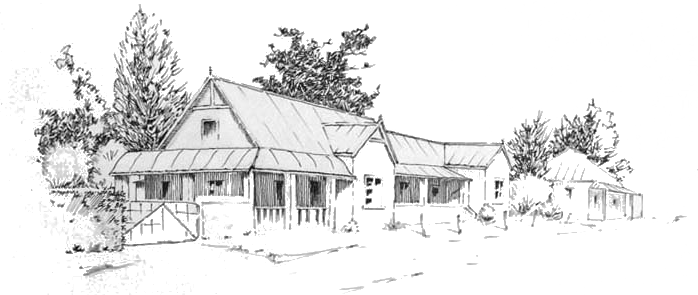THE RETURN OF THE CC DE FRANCE
by Ed Herbst
Pictures by Callum Glastone and Tom Moran

In a previous post on this website I said that Briton, Tom Moran, was regarded by many as the finest builder of split cane fly rods in the world today.
“With Tom Moran – considered by many to be the best in the world right now – a contention that will no doubt be hotly disputed by many split cane enthusiasts – now assisting Hardy in re-producing classics like the CC de France, the interest in these rods has never been higher.”
http://www.tomsutcliffe.co.za/index.php/pete-briggs/175-the-efftex-tackle-show
Tom and Callum Gladstone of Hardy are reproducing one of the most famous tapers in the company’s history, the CC de France.
I found this history on the internet
The Casting Club de France consisted of a group of anglers who met, under the presidency of Baron de Neuflize, at the Bois de Boulogne, Paris.
A casting tournament event was “The Little Rivers,” where extreme accuracy was required to place the fly into small floating hoops placed under overhanging branches along a wooded stream.
Members of the Casting Club de France invited Hardy's to design and produce a short light split cane rod, suitable for this discipline.
In 1910 John James Hardy produced a 7 ft two piece rod that weighed just over 3 ounces and took this to the Casting Club de France where he demonstrated precision casting.
He also showed that the rod could cast 25 yards.
The little rod became one of Hardy’s all time most successful bamboo fly rods and was catalogued under the name of 'C.C. de France' from 1911 to 1961.
Jim Hardy, the last of the Hardy family to sit on the board,described the 7 ft version of the CC de France rod as one of the four outstanding rods ever produced by Hardy's.
http://www.easisites.co.uk/page.html?SiteID=troutflyrod&View=2
More information can be found here:
http://fishingmuseum.org.uk/cc_de_france.html
http://classicflyrodforum.com/topic/42270
http://www.flyfishingspirit.com/spip.php?article161&lang=fr
http://www.flyfishingspirit.com/spip.php?article163
http://www.alternativetackle.com/page131/page131.html
The following photographs were taken in the Hardy rod shop by Callum and Tom and they show both an original CC de France and its modern counterpart as well as some of the rods that Tom is selling through Mark Leggett of Alternative Tackle in England

An original CC de France made by Hardy Bros in 1910 (then named the Featherweight) – note the quality of the cork.

A close up of an original Hardy CC de France reel seat and ferrule.
Below is an original CC de France (left) with some of Tom Moran’s current models. The contrast in the finish and quality of the cork on the modern rods is telling.

Below are Tom Moran’s current models including a CC de France replica in the centre.

Moran makes every component of his rods including the reel seats.

The blued, low flash reel seat components are the epitome of restrained elegance

Moran even makes his own guides

Mark writes: “Tom will still be making his own rods alongside the Hardy rods & they are available to order through me.
“They will always be a limited supply as Tom plans on only making 10-15 such rods a year.
“Current prices are £1595 for a 2 piece & £1815 for a 3 piece all rods come with 2 tips & a leather tube as standard and are available flamed or straw.”
One of Moran’s current rods is already on order by a lucky South African. The reborn CC de France must be a wonderful small stream rod given that short range accuracy was central to the taper’s design and that it was produced for a casting event aptly called, “The Little Rivers”.


